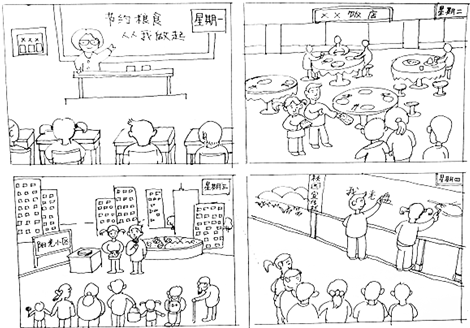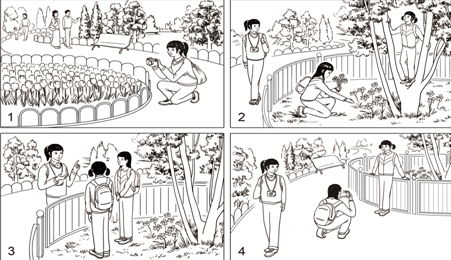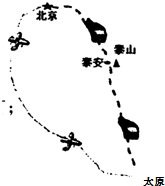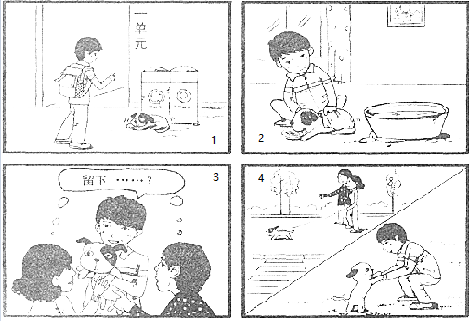题目内容
13.Anne Whitney,a sophomore at Colorado State University,first had a problem taking tests when she began college."I was always well prepared for my tests.Sometimes I studied for weeks before a test.Yet I would go in to take the test,only to find I could not answer the questions correctly.I would blank out because of nervousness and fear.I couldn't think of the answer.My low grades on the tests did not show what I knew to the teacher."Another student in microbiology had similar experiences.He said,"My first chemistry test was very difficult.Then,on the second test,I sat down to take it,but I was so nervous that I was shaking.My hands were moving up and down so quickly that it was hard to hold my pencil.I knew the material and I knew the answers.Yet I couldn't even write them down!"These two young students were experiencing something called test anxiety.Because a student worries and he is uneasy about a test,his or her mind does not work as well as it usually does.The student can't write or think clearly because of the extreme tension and nervousness.Although poor grades are often a result of poor study habits,sometimes test anxiety causes the low grades.Recently,test anxiety has been recognized as a real problem,not just an excuse or a false explanation of lazy students.
Special university counseling courses try to help students.In these courses,counselors try to help students by teaching them how to manage test anxiety.At some universities,students take tests to measure their anxiety.If the tests show their anxiety is high,the students can take short courses to help them deal with their tension.These courses teach students how to relax their bodies.Students are trained to become calm in very tense situations.By controlling their nervousness,they can let their minds work at ease.Learned information then comes out without difficulty on a test.
An expert at the University of California explains."With almost all students,relaxation and less stress are felt after taking our program.Most of them experience better control during their tests.Almost all have some improvement.With some,the improvement is very great."
50.To"blank out"in the first paragraph is probablyD.
A.to be like a blanket
B.to be unsure of an answer
C.to show wrong knowledge to the teacher
D.to be unable to think clearly
51.Poor grades are usually the result ofD.
A.poor hygienic habits B.laziness
C.lack of sleep D.inability to form good study habits
52.To deal with this problem,students say they want toA.
A.take a short course on anxiety
B.read about anxiety and know how to deal with it
C.be able to manage or understand their anxiety
D.take tests to prove they are not anxious
53.What can be inferred from the passage?B
A.all students could overcome the anxiety after taking a special test anxiety
program
B.most of the students felt relaxed after taking a University of California
counseling course
C.students found it difficult to improve even if they had taken a special test
anxiety course
D.students found it easy to relax as soon as they entered a counseling course.
分析 文章介绍了学生的考试焦虑现象,很多学生因为紧张,考试时无法思考,导致成绩不理想.为了解决这个问题,一些学校开设了缓解考试焦虑症的课程,帮助学生处理考试压力,效果良好.
解答 50.D 猜测词意题.后一句说I couldn't think of the answer因为紧张,我想不起来答案,说明头脑一片空白,不能清楚地思考.故选D.
51.D 细节理解题.文章第二段说Although poor grades are often a result of poor study habits,sometimes test anxiety causes the low grades尽管成绩不好通常是学习习惯不好的结果,但有时候考试焦虑也会影响成绩.故选D.
52.A 细节理解题.文章第三段说If the tests show their anxiety is high,the students can take short courses to help them deal with their tension如果测试的结果表明焦虑严重,学生可以参加一些短期处理紧张的课程.故选A.
53.B 推理判断题.文章最后一段说With almost all students,relaxation and less stress are felt after taking our program.Most of them experience better control during their tests几乎所有的学生在接受了缓解压力的培训后,都能很好地控制自己的紧张情绪.故选B.
点评 阅读理解是考查语篇理解能力.常考的题型有:推理判断题;主旨大意题;细节理解题;猜测词意题.近几年又出现了两种新的考查方式:写作态度判断题和文章结构题.解题时,在读懂文章的基础上,还有特别注意掌握题型的特征,尤其是细节题和推断题不可混淆:细节题是文章信息的再现;推断题是文章信息的提取.本题是广告类文章,考查主要是以细节题为主,细节题要注意常用的出题陷阱有:夸大,缩小,张冠李戴,偷梁换柱,无中生有等,做题时要看清看准.

 阅读快车系列答案
阅读快车系列答案| A. | has returned | B. | returned | C. | had returned | D. | will return |
-- .( )
| A. | It was the least I could do. | B. | You mustn't say that. | ||
| C. | So what? | D. | Take it easy. |


 假如你是太原某所中学的学生李华.暑假将至,你校外籍教师Mr.Smith打算利用暑假外出旅游,请你根据图片和中文提示用英语写一封信,为Mr.Smith提供旅游建议.
假如你是太原某所中学的学生李华.暑假将至,你校外籍教师Mr.Smith打算利用暑假外出旅游,请你根据图片和中文提示用英语写一封信,为Mr.Smith提供旅游建议. 仔细观察图画,理解其含义,请按要求完成一篇短文.
仔细观察图画,理解其含义,请按要求完成一篇短文.